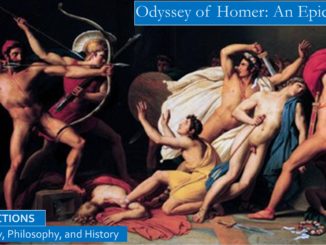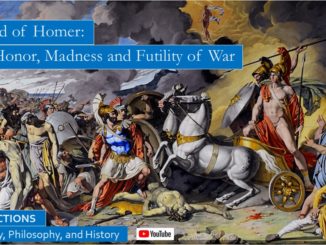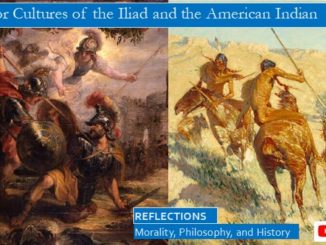
Odyssey, Blog 4, The Slaughter of the Suitors
When Odysseus had seen his departed mother in Hades she said from the shades, “your father stays among the fields, and comes to town no more. Bed he has none, no robes, no bright-hued rugs. Through the winter he sleeps in the house where the servants sleep, in the dust besides the fire, and wears upon his body sorry clothes. . . . There he lies in distress, woe waxing strong within him, longing for your return; and hard old age comes on. Even so I also died and met my doom. . . . longing for you, your wise ways, glorious Odysseus, and your tenderness, took joyous life away.” […]



